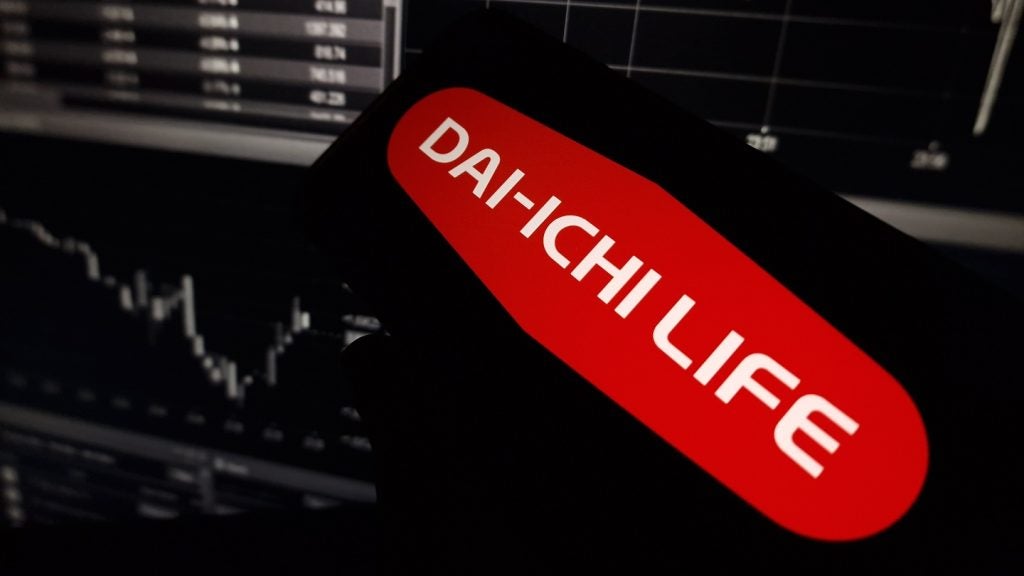Industry Attractiveness
The Turkish insurance industry is among the fastest-growing industries in the world. The industry valued TRY19.1 billion (US$11.5 billion) in 2012, in terms of gross written premium. The industry’s penetration rate of 1.35% in 2012 is substantially below the 7.6% European average and, combined with the improving regulatory framework and a stable GDP growth, is driving the expansion of the industry.
The Turkish insurance industry remained largely unaffected by global economic concerns, and registered a CAGR of 12.6% between 2008 and 2012, unlike most other developed Western and European countries. The industry’s gross written premiums grew from TRY11.9 billion (US$9.2 billion) in 2008 to TRY19.1 billion (US$11.5 billion) in 2012.
Foreign insurance companies have positioned themselves in the Turkish insurance industry to take advantage of potential growth opportunities. There were 62 insurance companies operating in the Turkish insurance industry at the end of 2011, according to the Insurance Association of Turkey. Out of 35 non-life insurers, 28 were foreign-owned while 23 of the 27 life and pension companies had foreign ownership. In addition, there was only one domestic reinsurance company, Milli Re, among other global reinsurance companies such as Swiss Re and Munich Re.
Industry growth was led by the life insurance segment, which accounted for 17.4% of the total insurance written premium value in 2012. The segment valued at TRY3.3 billion (US$2.0 billion) in 2012, after recording a CAGR of 18.6%. A favorable demography, with 67.4% of population in the 15-64 years age group, and an increase in life expectancy, coupled with sustained GDP growth, spurred the demand for life insurance products.
The non-life segment accounted for the largest share of the industry’s gross written premiums with 67.2% in 2012. The motor insurance category accounted for the largest segmental share of 56.9% in 2012. The stable demand for motor third-party and other compulsory insurance products such as professional liability and insurance for dangerous materials supported the growth.
The personal accident and health insurance segment, the third-largest segment, registered a CAGR of 12.6% in that period. The rising healthcare expenditure and government reforms to expand healthcare facilities drove the growth of the personal accident and health insurance products.
Turkish insurance companies employ diverse distribution channels to sell life insurance products. The leading distribution channels for life insurance in Turkey is bancassurance, accounting for a 77.2% share of the total commission. Agencies were the largest distribution channel for non-life insurance, accounting for 67.7% of the total commission paid in 2012.
The Turkish insurance industry is expected to consolidate over the coming years due to increasing competition and improvements in regulation to align it with global standards (such as EU countries’ Solvency II norms). For example, on March 27th, 2013, Allianz entered into an agreement with the Turkish lender Yapi Kredi Bank to purchase its insurance business, Yapi Kredi Sigorta, the fifth-largest property insurer in Turkey.
The Turkish insurance industry is expected to grow at a CAGR of 10.6% to reach TRY31.7 billion (US$19.0 billion) in 2017. Steady economic growth, increasing foreign investment (FDI), new product development and the adoption of technology to cater to diverse customer needs will support the growth of the industry. However, a high combined ratio, a depreciating currency, increasing competition in the non-life segment, and a changing regulatory environment will act as barriers for growth.
Segment Outlook
Life insurance was the second-largest segment in the Turkish industry in 2012, accounting for 17.4% of the industry’s total written premiums. Led by sustained economic growth and favorable demographics, the segment expanded at a robust CAGR of 18.6%, increasing from TRY1.7 billion (US$1.3 billion) in 2008 to TRY3.3 billion (US$2.0 billion) in 2012. The segment’s penetration rate also increased from 0.18% to 0.23% in the same period, but remains the lowest in the European region. There were 27 life and pension providers operating in the segment at the end of 2011, of which 23 hadforeign ownership. The segment is competitive and concentrated with the 10 leading companies accounting for 85.6% of the gross written premiums in 2011.
Individual life insurance dominated the insurancesegment in 2012, accounting for 75.7% of the segment’s gross written premiums. The category was followed by individual pension products with 15.7%, group life cover products with 12.1% and group superannuation products with 6.0%.
The individual life category accounted for 75.7% of the segment’s total written premiums in 2012, with a value of TRY2.5 billion (US$1.5 billion). Pension was the second-largest category and recorded a written premium of TRY0.4 billion (US$0.2 billion) in 2012.
Pensions registered the fastest growth at a CAGR of 46.0% between 2008 and 2012. This is mainly due to the introduction of new regulations related to life insurance products in March 2009, which enabled life insurers to market long-term savings products such as annuities, driving the demand for pension products.
Bancassurance was the preferred distribution channel among life insurers, accounting for 77.2% of the total commission paid in 2012. Agencies was the second-largest channel and are used as an effective and cost-saving method by life insurers in Turkey. Insurers are extensively developing online sales platforms aimed at younger customers. Ageon Turkey became the first company to launch an online platform for the sale of products through tablets and mobile phones in February 2013.
The life segment is expected to increase at a CAGR of 13.6%, from TRY3.3 billion (US$2.0 billion) in 2012 to TRY6.3 billion (US$3.8 billion) in 2017. The low penetration rate, increasing life expectancy and sustained GDP growth will be the major factors driving the demand for life products. The amendment to the private pension and investment system law by the government, which makes any person above 18 years eligible for the private pension plans (BES), will spur the demand for long-term insurance products. However, given the increasing competition, a depreciation in currency and changes in regulations to align with the international standards, such as Solvency II, the life segment is expected to consolidate over the coming years.
The individual life category accounted for 75.7% of the segment’s total written premiums in 2012, with a value of TRY2.5 billion (US$1.5 billion). Pension was the second-largest category and recorded a written premium of TRY0.4 billion (US$0.2 billion) in 2012.
Distribution Channels
Turkish life insurers employ diverse distribution channels to sell life products. An insurance company may offer its products via branch offices, intermediaries or through direct writing, which involves direct contact between the client and company. The leading distribution channels for life cover in Turkey are bancassurance, agencies and direct marketing. These channels together accounted for 99.4% of the life segment’s total written commission in 2012.
Bancassurance was the largest distribution channel in 2012. A developed bank network means it is easier for banks to cross-sell products to a large proportion of the population. Insurance companies also favored using bancassurance over other channels such as brokers to reduce their distribution costs. Bancassurance’s share of the total commission paid for distributing life products increased from 55.3% in 2008 to 77.2% in 2012, due to an increase in the financial sector penetration and strong economic recovery following the global financial crisis.
Authorized agencies also played an important role in the expansion of the Turkish life segment. Agency networks have close relationships with insurers and pension providers and operate according to the insurer’s interests. They generated 20% of the total new business written premiums in the segment between 2008 and 2012, due to their wide geographical reach and agent network, making it an efficient and affordable channel for product distribution. The channel also offers insurers a large client base, strong brand reputation and an existing sales force at a relatively low cost.
Direct marketing was the third-largest distribution channel with a 9.8% share in total life insurance commission in 2012. The rise in direct marketing for distributing life products in Turkey could be attributed to the growing popularity of web-based services, and spending by insurers to distribute products online. The direct marketing channel’s popularity is due to cost savings in the form of reduced commissions, a part of which can also be passed on to the end policy holder in the form of reduced premium prices to facilitate customer retention.
Bancassurance will remain the major distribution channel for life cover in Turkey, followed by agencies. The new business gross written premium generated through bancassurance is expected to register a CAGR of 19.4% up to 2017 and the share of total commission paid for distributing life products is projected to increase to 85.1% in 2017. Turkish banks will focus on increasing fee-based income by promoting the sale of financial products such as life policies as a platform for long-term savings and investment. New strategies by major companies will include cost-control measures, achieving economies of scale, and increasing transparency to boost consumer confidence.
How well do you really know your competitors?
Access the most comprehensive Company Profiles on the market, powered by GlobalData. Save hours of research. Gain competitive edge.

Thank you!
Your download email will arrive shortly
Not ready to buy yet? Download a free sample
We are confident about the unique quality of our Company Profiles. However, we want you to make the most beneficial decision for your business, so we offer a free sample that you can download by submitting the below form
By GlobalDataPorter’s five forces analysis of the Turkish life insurance segment
Bargaining power of supplier
The key suppliers to life insurers are banks. In Turkey, most leading companies have been promoted by banks, providing them with access to capital for their operations and expansion. Moreover, large foreign insurers such as Allianz, AXA, Aviva, Groupama and Mapfre, who are all present in the Turkish life segment, have fewer requirements to raise funds from the domestic financial market. However, the anticipated accession of Turkey to the EU restart of negotiation in 2013 will raise the capital adequacy standards. The country has started to conduct the Solvency II Directive’s fifth quantitative impact study, also known as QIS5, which insurers within the EU completed in 2010. Turkey’s capital adequacy standards are double those of the Solvency I requirements. Suppliers of capital to insurers have high negotiating power, especially against smaller insurers as limited sources of finance are available in the Turkish market. Life insurers also require the services of reinsurance companies to reduce their own exposure to insured risks. Due to the ongoing consolidation in the industry and the large number of smaller life insurers, the bargaining power of suppliers is expected to be medium to high.
Bargaining power of the buyer
The bargaining power of individual buyers of life policies in Turkey is medium. Life insurance was a buyer’s market with over 27 companies operating in the segment between 2008 and 2012. With the life segment’s penetration ratio at 0.23% of the country’s GDP, the bargaining power of individual buyers is medium. Due to significant competition, smaller life insurers have offered coverage at very low premiums, and the Turkish government’s regulations aimed at compulsory life products are designed to protect the interests of individual policyholders, increasing their negotiating power.
Barriers to entry
The barriers to entry to the life segment are medium to high. Life insurers adhere to the capital adequacy requirements under Solvency I norms in Turkey. However, the regulatory authority has started conducting Solvency II’s fifth quantitative impact study (also known as QIS5), as the Turkish government is trying to get its regulatory regime on par with the EU. Consequently, bank sponsored and state-owned companies have an advantage over other entrants as they have a well-established distribution network and economies of scale which are difficult to achieve in the initial entry stages. With the Turkish regulatory authority’s determination to implement new regulations focusing on risk management and protection of policyholders’ interests, the barriers to entry in the industry are expected to increase.
Intensity of rivalry
The life segment is highly concentrated with the 10 leading companies accounting for 85.6.0% share of gross written premiums in December 2011. The intensity of rivalry is high with 27 companies operating in the segment at the end of 2011. Smaller life insurers compete on price by offering lower-premium products as the level of differentiation between products and services is relatively low. Insurers that have low marketing and distribution costs, efficient administrative systems and improved customer service are expected to do well. In the long term, the life segment will record further consolidation with large companies acquiring smaller ones to create synergies in products and distribution network.
Threat of substitutes
The threat of substitution for life products in Turkey is low. Most life products, primarily pension products, offer risk coverage and are usually positioned as investments and retirement planning products. Life products have been positioned as a long-term investment option and, in some cases, have been made mandatory by the Turkish government. There are no direct substitutes available for products such as term insurance.







